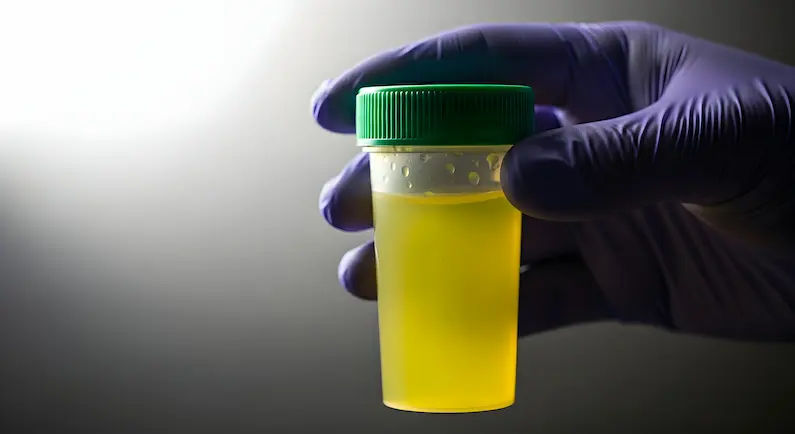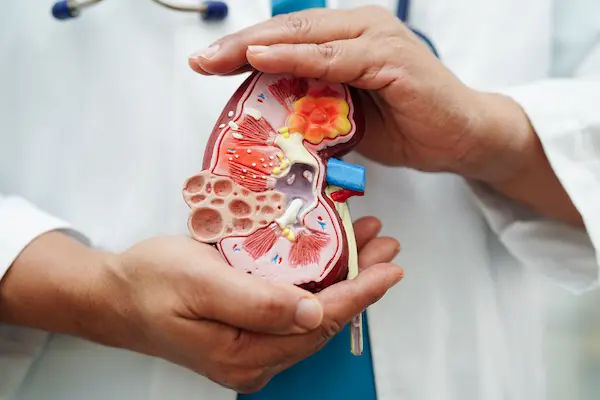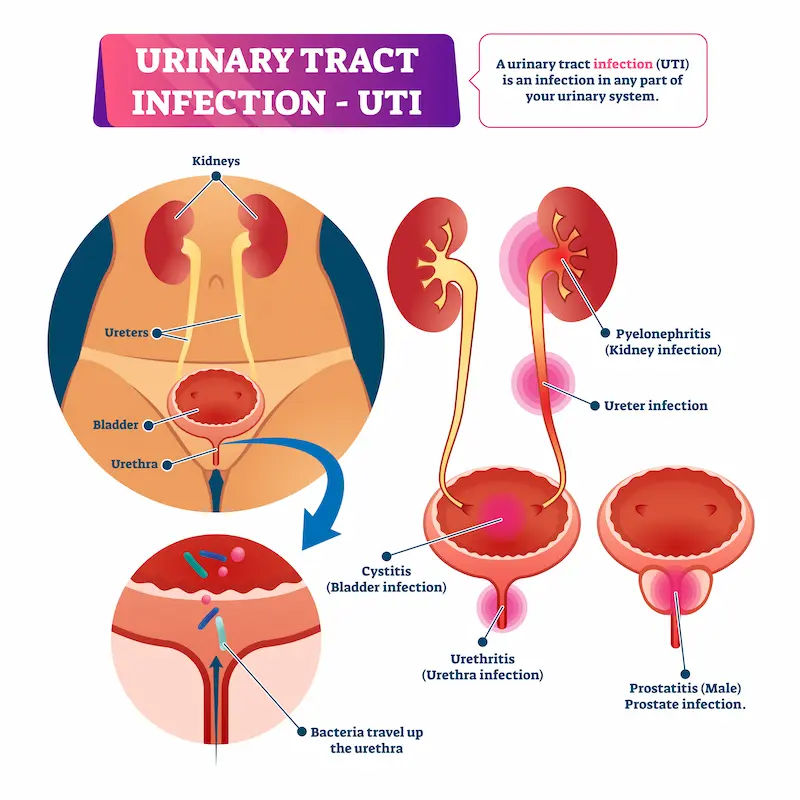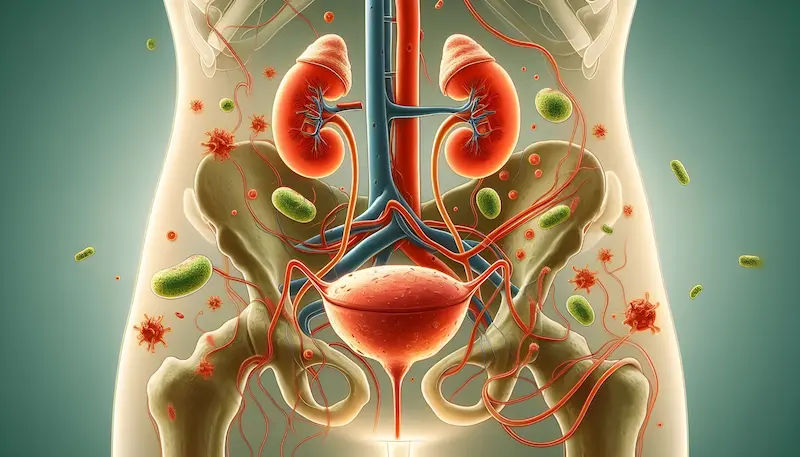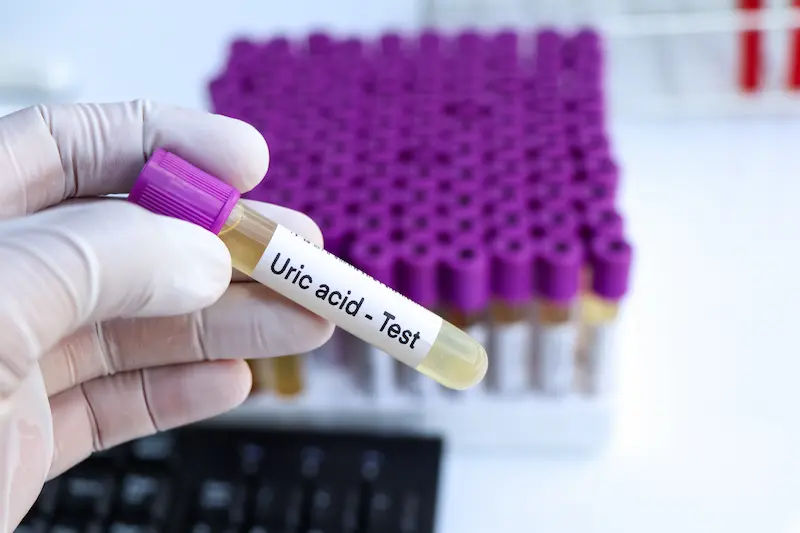Guide to Hydration And Urinary Health
Discover the importance of hydration for urinary health, with tips to prevent infections and maintain optimal kidney and bladder function.

.webp?tr=q-80,f-webp,w-350,dpr-2,c-at_max 700w)
Introduction
Water is the essence of life, and its importance extends to every cell in your body. But when it comes to your urinary health, proper hydration isn't just a recommendation, it's a fundamental requirement. Your kidneys, bladder, and urinary tract work tirelessly to remove waste and maintain a delicate balance within your body. This complex system relies heavily on adequate fluid intake to function smoothly. When you don't drink enough, you risk a cascade of issues, from minor discomfort to serious conditions like kidney stones and infections. This comprehensive guide will dive deep into the critical connection between hydration and urinary health. We'll explore how water supports your body's filtration system, identify the signs of dehydration, clarify how much fluid you truly need, and provide practical tips to keep your urinary system in peak condition. Understanding this vital link is your first step toward long-term wellness.
Why Your Urinary System Thrives on Water
Think of your urinary system as your body's sophisticated plumbing and waste management plant. Its primary components, the kidneys, ureters, bladder, and urethra work in concert to filter blood, produce urine, and expel toxins. Water is the essential solvent that makes this entire process possible.
The Kidneys: Your Body's Master Filtration System
Your two kidneys process about 150 quarts of blood daily to produce about 1-2 quarts of urine. This incredible feat of filtration is dependent on a steady flow of water. Adequate hydration ensures that blood flows freely to the kidneys, allowing them to efficiently separate waste products like urea and creatinine from essential nutrients and red blood cells, which are returned to the bloodstream. When you are well-hydrated, the kidneys can produce dilute, light-coloured urine, effortlessly flushing out these wastes. Chronic dehydration, however, forces the kidneys to work harder, concentrating urine and increasing the risk of crystal formation that can lead to painful kidney stones.
How Water Flushes Out Toxins and Prevents Infections
A consistently high urine flow is one of the best defences against urinary tract infections (UTIs). Bacteria that cause UTIs, such as E. coli, need to cling to the lining of the urethra and bladder to multiply and cause an infection. By drinking plenty of water, you create a frequent and powerful flushing action. This literally washes away potential pathogens before they have a chance to establish a foothold. Furthermore, diluted urine is less irritating to the bladder lining, which can help soothe symptoms for those prone to bladder inflammation or cystitis.
Recognising the Signs: Dehydration and Your Urinary Health
Your body sends clear signals when it's running low on fluids. Learning to recognise these signs is crucial for maintaining urinary health.
The Colour Code: What Your Urine Says About Your Hydration
The most immediate indicator of your hydration status is the colour of your urine. While the classic "8x8" rule (eight 8-ounce glasses of water per day) is a good starting point, your individual needs can vary significantly based on several factors.
- Activity Level: Exercise causes fluid loss through sweat. The more intense and prolonged your activity, the more you need to drink before, during, and after.
- Climate: Hot and humid weather accelerates sweating, as does living at high altitudes.
- Overall Health: Fever, vomiting, and diarrhea cause rapid fluid loss and require increased intake. Conditions like
kidney stones or chronic UTIs also necessitate higher fluid consumption as a preventive measure. - Pregnancy and Breastfeeding: Women in these stages have significantly increased fluid requirements.
- Age: Older adults often have a diminished sense of thirst, putting them at higher risk for dehydration.
The Role of Electrolytes in Fluid Balance
While water is crucial, electrolyte balance is equally important for proper hydration. Electrolytes like sodium, potassium, and chloride help regulate fluid balance within and between your cells. When you sweat heavily or are ill, you lose both water and electrolytes. Replenishing with plain water is sometimes not enough and can even dilute electrolyte levels further. In these cases, consuming an oral rehydration solution or eating electrolyte-rich foods (like bananas or coconut water) can be more effective for restoring optimal fluid balance.
Consult a Urologist for the best advice
Hydration for Specific Urinary Conditions
Tailoring your hydration strategy can be particularly beneficial if you are managing or prone to specific urinary issues.
Preventing Urinary Tract Infections (UTIs) with Fluids
For individuals, especially women, who are prone to UTIs, hydration is a first-line defense. A landmark study found that women who increased their water intake by 1.5 litres per day experienced nearly 50% fewer recurrent UTIs than those who did not. The mechanism is simple: more fluid intake leads to more frequent urination, which reduces the concentration of bacteria in the bladder and flushes them out. If you feel a UTI coming on, immediately increasing your water intake can sometimes help mitigate the severity, though it is not a substitute for medical treatment. If you experience painful or frequent urination, it's important to consult a doctor online with Apollo24|7 for a proper diagnosis and treatment plan.
Reducing the Risk of Kidney Stones
Kidney stones form when minerals in your urine become highly concentrated and crystallise. The single most important dietary factor for preventing stones is high fluid intake. By drinking enough water, you dilute the very substances that lead to stone formation. The National Kidney Foundation recommends producing about 2.5 litres of urine per day to prevent stones, which typically requires a daily fluid intake of 2.5 to 3 litres (about 10-12 cups). For those with a history of stones, monitoring urine colour to ensure it remains light yellow is a critical daily habit.
Beyond Water: The Impact of Other Beverages on Urinary Health
Not all fluids are created equal when it comes to urinary health.
The Truth About Coffee, Tea, and Soda
Beverages containing caffeine (coffee, tea, many sodas) have a mild diuretic effect, meaning they can cause your body to expel more water. However, the fluid they provide generally outweighs this effect, so they still contribute to your overall hydration. The bigger issue for urinary health is potential bladder irritation. Caffeine and acidic drinks like coffee and soda can irritate the bladder lining in some people, leading to increased urgency or frequency, especially in those with conditions like interstitial cystitis. Moderation is key.
Are Sports Drinks and Juices a Good Choice?
Sports drinks can be beneficial for replenishing electrolytes after intense, prolonged exercise. However, for the average person, they often contain unnecessary sugar and calories. Fruit juices, while containing water and vitamins, are also high in sugar, which can be detrimental to overall and urinary health. The best choice for daily hydration remains water. Herbal teas (like peppermint or chamomile) and infused water (with cucumber, lemon, or berries) are excellent, non-irritating alternatives.
Practical Strategies for Staying Optimally Hydrated
Making hydration a seamless part of your day is easier than you think.
Simple Habits to Increase Your Daily Water Intake
- Carry a Reusable Bottle: Keep a water bottle with you at all times as a visual reminder.
- Set Smartphone Reminders: Use an app or alarm to prompt you to take a few sips every hour.
- Pair with Habits: Drink a glass of water before each meal and after every bathroom break.
- Use a Marked Bottle: A bottle with time markings can help you pace your intake throughout the day.
Hydrating Foods You Should Be Eating
About 20% of our fluid intake comes from food. Incorporating water-rich foods is a delicious way to boost hydration.
- Cucumber and Lettuce: (96% water)
- Celery and Zucchini: (95% water)
- Watermelon and Strawberries: (over 90% water)
- Broth-based Soups: Also contribute significantly to fluid intake.
Conclusion
The link between hydration and urinary health is undeniable and profound. By prioritising adequate fluid intake, you are actively supporting your body's vital filtration system, reducing your risk of painful conditions, and promoting overall well-being. Remember, hydration is not a one-time task but a continuous practice. Listen to your body's signals, use the colour of your urine as a guide, and make water your beverage of choice. Small, consistent habits, like carrying a water bottle and eating hydrating foods, can make a world of difference. If you have specific concerns about your urinary health, such as recurring symptoms or a history of kidney stones, don't hesitate to seek professional guidance. Taking a proactive approach to hydration is one of the simplest and most powerful investments you can make in your long-term health.
Consult a Urologist for the best advice
Consult a Urologist for the best advice

Dr. Sudhakar G V
Urologist
25 Years • MBBS, MS(Gen.Surgery), DNB Urology
Bengaluru
Apollo Clinic, JP nagar, Bengaluru

Dr. Prabir Basu
Urologist
19 Years • MBBS, MS General Surgery, DNB Genito-Urinary Surgery
Jodhpur Park
Dr. Prabir Basu urology clinic, Jodhpur Park
(200+ Patients)

Dr. Samiran Das Adhikary
Urologist
26 Years • MBBS; MS(General Surgery); Mch(Urology). Senior Consultant - Urology & Renal Transplant Surgery
Bhubaneswar
Apollo Hospitals Old Sainik School Road, Bhubaneswar

Dr Anupam Sharma
Urologist
18 Years • MBBS, MS(Gen Surgery), DNB (Urology)
Delhi
Apollo Hospitals Indraprastha, Delhi
(25+ Patients)

Dr. Barun Kumar
Urologist
12 Years • MBBS MS MCH UROLOGY DNB GENITOURINARY SURGERY
Guwahati
Apollo Clinic Guwahati, Guwahati
Consult a Urologist for the best advice

Dr. Sudhakar G V
Urologist
25 Years • MBBS, MS(Gen.Surgery), DNB Urology
Bengaluru
Apollo Clinic, JP nagar, Bengaluru

Dr. Prabir Basu
Urologist
19 Years • MBBS, MS General Surgery, DNB Genito-Urinary Surgery
Jodhpur Park
Dr. Prabir Basu urology clinic, Jodhpur Park
(200+ Patients)

Dr. Samiran Das Adhikary
Urologist
26 Years • MBBS; MS(General Surgery); Mch(Urology). Senior Consultant - Urology & Renal Transplant Surgery
Bhubaneswar
Apollo Hospitals Old Sainik School Road, Bhubaneswar

Dr Anupam Sharma
Urologist
18 Years • MBBS, MS(Gen Surgery), DNB (Urology)
Delhi
Apollo Hospitals Indraprastha, Delhi
(25+ Patients)

Dr. Barun Kumar
Urologist
12 Years • MBBS MS MCH UROLOGY DNB GENITOURINARY SURGERY
Guwahati
Apollo Clinic Guwahati, Guwahati
More articles from Urinary Tract Infections
Frequently Asked Questions
1. Can you drink too much water?
Yes, though it is rare. Over-hydration, or hyponatremia, occurs when you drink so much water that it dilutes the sodium in your blood to dangerously low levels. This is primarily a concern for endurance athletes. For most people, the kidneys are efficient at excreting excess water.
2. Does drinking water help with bladder inflammation?
Yes, it can. While acidic or caffeinated drinks may irritate the bladder, plain water helps dilute urine, making it less irritating to the inflamed bladder lining. It's a key supportive measure for conditions like interstitial cystitis.
3. I'm elderly and don't feel thirsty often. How can I stay hydrated?
As we age, the thirst mechanism becomes less sensitive. It's important to drink water on a schedule, not just when you feel thirsty. Keep a water bottle in common areas, set reminders, and include soups, broths, and water-rich fruits in your meals.
4. What are the best drinks for kidney stone prevention?
Water is the best. Some studies suggest that citrus juices like lemonade and orange juice, which contain citrate, can help prevent certain types of stones by inhibiting crystal formation. It's best to avoid sugary sodas and high-sodium drinks.
5. How does dehydration affect kidney function long-term?
Chronic, severe dehydration can put sustained stress on the kidneys and may contribute to the development of kidney disease over time, especially in individuals with other risk factors like diabetes or high blood pressure. If you have concerns about your kidney function, Apollo24|7 offers a convenient home collection for tests like creatinine and urinalysis to help with evaluation.
